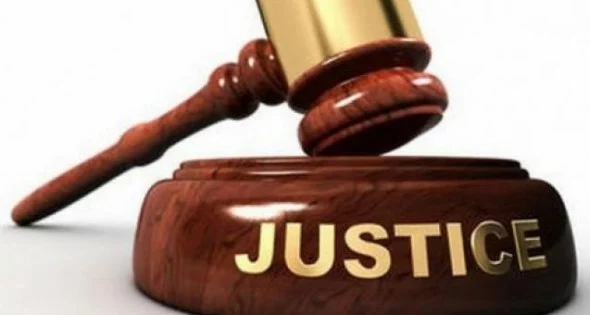Succumbing to pressure from activists, President Bola Ahmed Tinubu, recently reopened the almost closed chapter of the tragedy that befell Ogoniland 30 years ago in 1994. In his address to the nation to mark June 12, the much-acclaimed Democracy Day, he pardoned the Ogoni Nine, made up of social activist and head of the Movement for the Survival of the Ogoni People (MOSOP), Ken Saro-Wiwa, alongside eight of his fellow leaders -Saturday Dobee, Nordu Eawo, Daniel Gbooko, Paul Levera, Felix Nuate, Baribor Bera, Barinem Kiobel, and John Kpuine. He also conferred on them posthumous national honours.
The Ogoni Nine, as they have come to be famously referred to, were put on trial for allegedly inciting the murder of four Ogoni chiefs: Albert Badey, Edward Kobani, Theophilus Orage and Samuel Orage. They were found guilty and hanged on November 10, 1995. That incident provoked outrage and condemnations by world leaders, individuals and organisations, mainly because it happened at a time when the mood of the nation was against the military, which had earlier truncated a genuine democratic march with the annulment of an election that was believed to be free and fair.
Political observers, in analysing the motives that undergirded the move by President Tinubu, argued that his pardon and honours conferment were more than executive acts. That is beyond question. However, the assertion that they were reconciliatory moves, signalling that no part of the country, no matter how geographically small or politically marginalised, is forgotten in his vision of a united Nigeria, will make complete sense if the Ogoni Four are brought into the picture. Otherwise, as long as they are left out, the animosity and ill-feeling that precipitated the carnage will linger dangerously for generations, which will not serve the interest of peace in that community.
As a newspaper committed to the cause of natural justice, equity and good conscience, we think the President ought to have accommodated the Ogoni Four in his act of prerogative of mercy to close that ugly chapter in the nation’s history and march to democracy.
General Yakubu Gowon (rtd) set an example when, at the end of the Civil War in 1970, he had the good heart to grant pardon to those who played major roles in that fratricidal war that took the nation 30 months back. President Shehu Shagari consummated the process by pardoning Dim Chukwuemeka Odumegwu Ojukwu, a gesture that enabled him to return from exile and perceptibly closed the file on that war.
The Ogoni tragedy, as unfortunate as it was to most fair-minded individuals, was essentially a clash of personalities in a community that had seen the worst of internecine strife. The problem that led to the wiping out of a generation of Ogoni leaders was resource-based, intended to draw attention to its negative impact on the people. The parties in the dispute mismanaged what was otherwise a good cause. In the process, they played into the hands of other interests, shifting their focus to aspects that had nothing to do with the well-being of that oil-rich community infested with environmental despoilation and degradation.
The military junta at that time, under the dreaded strongman General Sani Abacha, took undue interest in the matter and politicised it. The pro-democracy activists fighting the military claimed that the killing of the Ogoni Nine was part of the Abacha regime’s anti-democracy credentials, which the international community bought into.
Nonetheless, the good point in the whole drama was that it brought into sharp focus the environmental challenges in Ogoniland. Beyond that, not much has changed to justify the killings and counter-killings that was the fate of a people striving to eke out a living in a land that is, in the real sense, flowing with the proverbial milk and honey.
It is important to emphasise that this editorial is not an effort to blame either side of the divide. A lot has already been written for and against, so any attempt to join issues with anyone now will amount to flogging a dead horse. Instead, it is an appeal to the President to assuage the hurt the families of the Ogoni Four feel now. The pardon and national honours granted to the Ogoni Nine at the exclusion of the other four cast them in the mould of the guilty party.
That, in our opinion, is not sufficiently fair. They were also patriotic Nigerians who paid the supreme price for a cause they believed was in the interest of their fatherland, in this instance, Ogoniland. We recall that just as the bodies of the Ogoni Nine were not recovered to date, those of the Ogoni Four were also lost to the bizarre circumstances that surrounded the better-forgotten crisis.
From this perspective, we urge President Tinubu to revisit the matter in the interest of lasting peace in Ogoniland.





